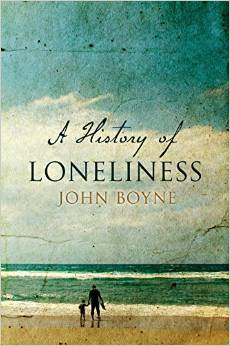
Odran Yates is an ordinary well-meaning young man of no great ambition, who believes he is dedicating his life to the good when he enters a Dublin seminary to train for the priesthood. While some of his peers struggle to adapt to a life of sexual denial he, apart from one brief interlude, feels he is well suited to his role. But, as Irish culture evolves over the following four decades, and the extent of sexual abuse within the Catholic Church is eventually revealed, his moral courage is put to the test. How far Odran, and others like him, is guilty by association, by turning a blind eye to the clues that speak volumes to the informed reader, is one of the central questions of the novel. The quote attributed to fellow Irishman, Edmund Burke, a good two centuries previously, comes readily to mind: All that is necessary for the triumph of evil is that good men do nothing.
Odran Yates is no saint. He is actually much happier rearranging the library bookshelves than undertaking any pastoral duties. In common with any young person discouraged from thinking for himself, he constructs his identity from others’ perceptions of him and his role, rather like the central character in In Search of Solace. And how the priesthood is revered! In one of several humorous touches in a deeply serious novel, when Father Yates boards a crowded train, the other passengers compete fiercely among themselves to offer him a seat and food, which he neither needs nor wants, for the journey. Yet there is a poignancy to this scene of adulation as, just as later in the novel, when attitudes have flipped to the opposite pole, and Odran is abused in a cafe, no-one sees him for himself. This, as his ill-fated friend, Tom Cardle, remarks at the end of the novel, is the enduring history of loneliness.
Sparks of black humour can also be found in the sexist gossip and condemnation of the few who live beyond the church’s reach; in the bizarre rituals including the absurdity of men with limited life experience conducting compulsory “marriage classes” to couples wishing to tie the knot in church. John Boyne has great fun with some of his larger-than-life characters who are much more entertaining on the page than they would be in real life. Another pleasure is in the rhythms of the prose and the lyrical dialogue that is so evocative of Ireland.
John Boyne is as even-handed as anyone could be in his treatment of this shameful aspect of recent Irish history. While exposing the institution’s rotten core, with a righteous anger in the later chapters in which the church is tested in both the media and the courts, he brings a sympathetic gaze to those flawed individuals who exist within it trying, and failing, to be good. Thus A History of Loneliness is more than a novel about the perils of religious dogmatism. It is a universal story of the extent of self-delusion in our efforts to stay loyal to our chosen paths.
It’s not easy, as a novice reviewer, to do justice to such powerful novel but I hope I’ve tempted at least some of my blog readers to find out more. It’s even more difficult to pinpoint what I can take from this novel into my own journey as a writer. What fuels the forward movement of this novel? The obvious answer is the importance of the subject matter and the quality of the writing, but is there anything more? As for character motivation, Odran has surrendered his desires to God. His goals are undefined and his attempts to achieve them are as passive as those of Lewis Sullivan in Alison Moore’s He Wants. Yet the reader perhaps feels motivated on his behalf. We want him to confront his mistakes, yet we want him to come out of the mess intact. Because, at various points, we know more about the corruption in the church than he does, it’s almost like watching a child transition to an adult and, although Odran is all of fifty-seven at the novel’s end, it does seem as if it takes until then for him to grow up. Is motivation handled differently in coming-of-age stories? I don’t know but perhaps you do?
A History of Loneliness was published by Doubleday on 11 September. Many many thanks for my proof copy. And, lest we delude ourselves that it’s only in Catholic Ireland that rampant child sexual abuse can go unpunished, I refer you to the recent debacle not so many miles from where I live. You might also want to check out my short story on Catholic guilt, Four Hail Marys, as well as my blog post about writing about abuse. I welcome your comments on any aspect of this post.





















 RSS Feed
RSS Feed





















